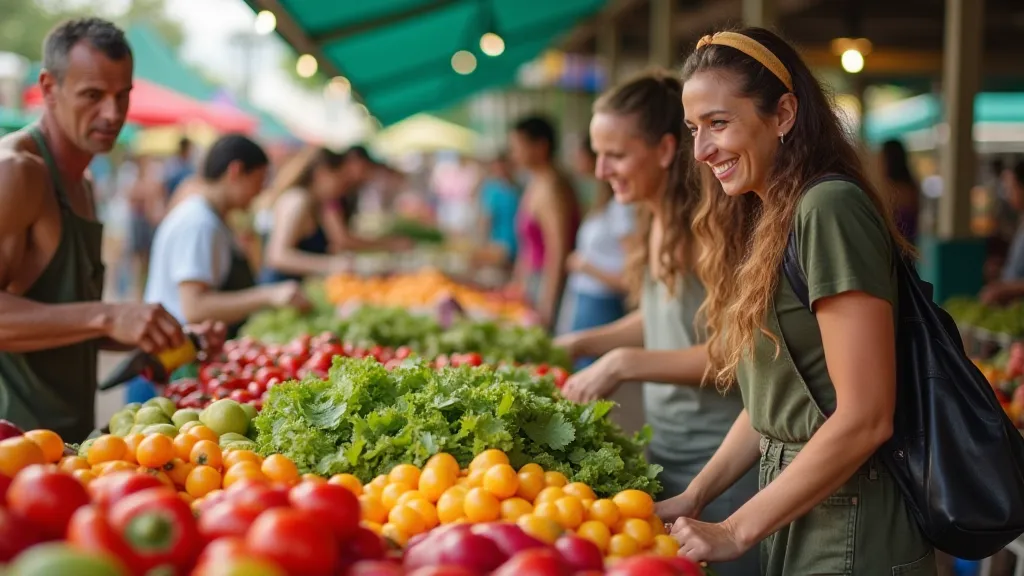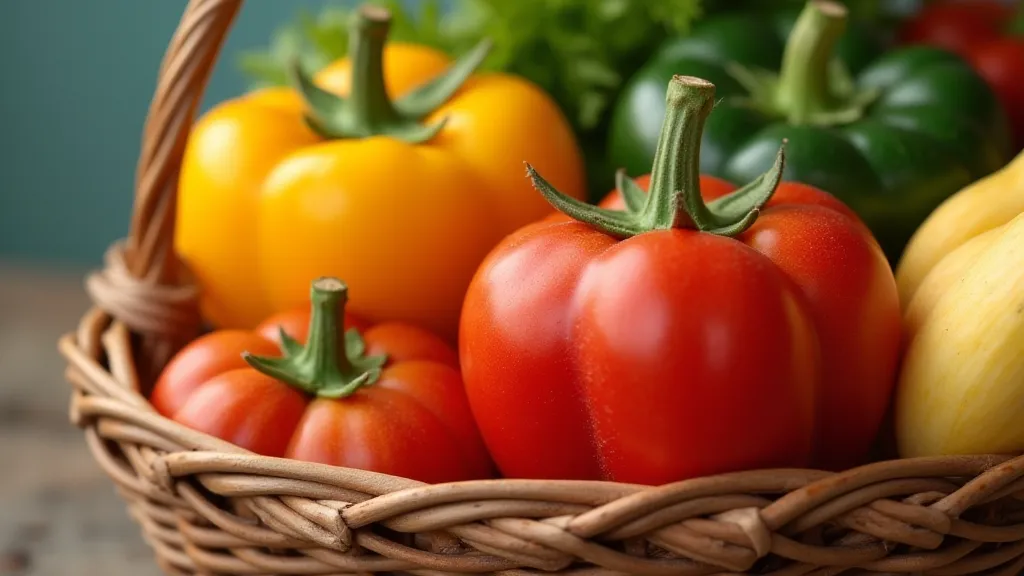Supporting Local Farmers: The Benefits of Buying Seasonal Produce
Our modern food system often feels disconnected. We can find strawberries in December and pumpkins in July, but this convenience comes at a cost. Buying local and seasonal produce offers a powerful way to embrace sustainable living and positively impact your community and the planet. Let’s explore the numerous benefits of supporting local farmers and choosing what’s naturally in season. It’s a move that aligns perfectly with a desire to reduce our overall environmental impact, a commitment that can extend to other areas of our lives, like choosing eco-friendly home products.
What is Seasonal Produce?
Seasonal produce simply means eating fruits and vegetables that are grown and harvested during a specific time of the year in your local region. Think juicy peaches in summer, crisp apples in fall, or hearty squash in winter. Each region has its own unique growing season, dictated by climate and geography. Understanding this cycle encourages a mindful approach to consumption, much like appreciating the natural processes behind decentralized energy initiatives, as explored in Solar Bloom: Harvesting Sunlight & Cultivating a Decentralized Future.
The Environmental Advantages
One of the most significant advantages of buying seasonal produce is the reduction in "food miles." Food miles refer to the distance food travels from the farm to your plate. When produce is shipped long distances, it requires fuel, contributing to greenhouse gas emissions and air pollution. Local produce significantly shortens this journey.
Furthermore, seasonal produce often requires less intervention to thrive. Farmers growing in season can utilize natural processes and fewer pesticides and herbicides. This reduces the environmental impact on soil, water, and biodiversity. Out-of-season produce frequently relies on heated greenhouses, artificial lighting, and transportation, all of which consume significant energy. The focus on natural processes also speaks to the benefits of returning nutrients to the soil, a practice beautifully detailed in The Benefits of Composting: A Beginner's Guide to Soil Enrichment, an essential component for any sustainable farm.
Choosing locally grown, seasonal produce also supports sustainable agriculture practices. Many small-scale farmers prioritize soil health, water conservation, and biodiversity – all key components of a resilient and environmentally friendly food system. This extends beyond just the farm itself; it also helps preserve the rural landscape and supports local economies. The impact of conventional agriculture on the environment is stark, often contributing to pollution and resource depletion. Sustainable farming, however, strives for a harmonious relationship with nature.

Supporting Your Community
When you buy from local farmers, you’re directly investing in your community's economy. It helps farmers maintain their livelihoods and continue to provide fresh, healthy food for everyone. Local farms often create jobs and contribute to the vitality of rural areas. The ripple effect of supporting local businesses extends to other areas, creating a more robust and self-sufficient community.
Building relationships with local farmers can also be incredibly rewarding. You learn about where your food comes from, how it’s grown, and the challenges farmers face. This connection fosters a deeper appreciation for food and the people who produce it. It moves beyond simple transactions to a shared understanding of the food system, and the value of human connection in agriculture.
Nutritional Benefits
Produce that's harvested at its peak ripeness, as is typical with seasonal and local offerings, is often more nutritious than produce that has been picked early to survive a long journey. It has had more time to develop its full flavor and nutrient profile. The shorter time between harvest and consumption also means more vitamins and minerals are retained. Studies consistently show a decline in nutrient density in produce transported over long distances and stored for extended periods. Think of the difference between a perfectly ripe tomato just picked from the vine and one that's been shipped across the country.
Finding Local and Seasonal Produce
There are many ways to find local and seasonal produce:
- Farmers Markets: These are a fantastic resource for connecting directly with farmers and discovering what’s in season.
- Community Supported Agriculture (CSA): Join a CSA program to receive a regular share of a farm’s harvest.
- Farm Stands: Many farms operate roadside stands where they sell their produce directly to consumers.
- Local Grocery Stores: Look for signage indicating locally sourced products.
Beyond these common avenues, consider exploring online directories that connect consumers with local farms. Many farmers also utilize social media to announce seasonal offerings and market days. Supporting local isn’t just about finding the food; it’s about building a network.

Embracing the Seasons
Shifting your eating habits to embrace the seasons can be a delicious adventure! Instead of longing for out-of-season favorites, explore the abundance of what’s naturally available. Discover new recipes and appreciate the unique flavors of each season. It’s a chance to reconnect with nature’s rhythm and celebrate the bounty of the land. The desire to minimize our environmental footprint isn’t just about food; it’s a shift in mindset, a willingness to prioritize sustainability in all aspects of our lives.
Consider the impact of fast fashion, another area where our consumer choices significantly affect the environment. Just as we can prioritize local and seasonal produce, we can also choose ethically and sustainably produced clothing. The negative impacts of the fashion industry, from water pollution to labor exploitation, are significant, and it’s crucial to be aware of our consumption habits and seek alternatives. This mindful approach extends beyond the plate and into our wardrobes, a commitment to conscious consumption that mirrors our appreciation for locally sourced food.

Conclusion
Supporting local farmers and choosing seasonal produce is a win-win for the environment, your community, and your health. It's a simple yet powerful way to embrace sustainable living and contribute to a more resilient and equitable food system. Start small, explore your local options, and savor the delicious rewards of eating with the seasons! It’s more than just a trend; it's a conscious choice that aligns with a deeper commitment to our planet and our community. By embracing the principles of local and seasonal eating, we can all contribute to a more sustainable and equitable future.





